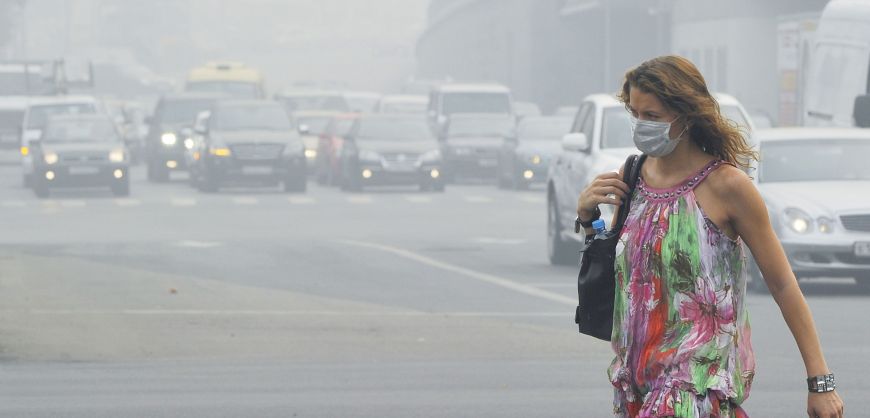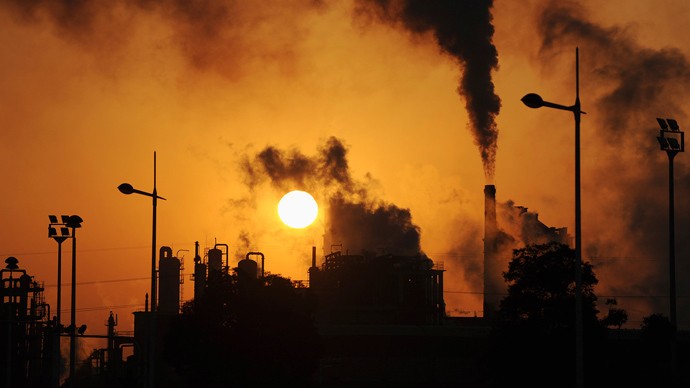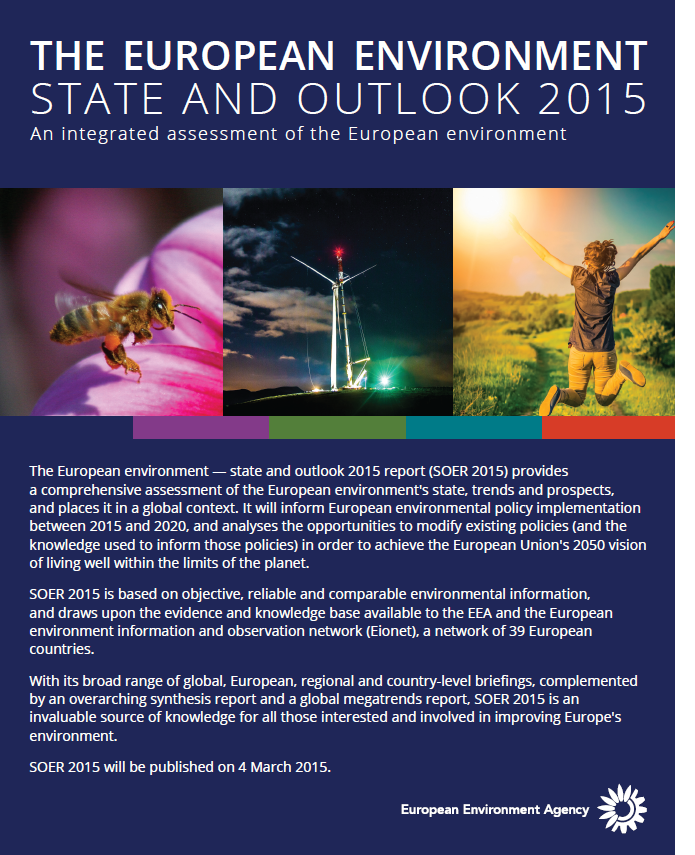The European Environmental Agency, the EU environmental watchdog, warns that hundreds of thousands of Europeans will suffer premature death in the next 20 years as a result of the EU countries’ failure to act on air pollution.The EEA’s five-yearly assessment, titled “The European environment – state and outlook 2015” (SOER 2015), estimated that 400,000 Europeans died prematurely since 2011 as a result of breathing toxic fumes.
Today, Europeans enjoy cleaner air and water, less waste is sent to landfill and more resources are recycled. However, Europe remains a long way from achieving the objective of ‘living well within the limits of the planet’ by 2050, as set out in the 7th Environment Action Programme. Although we use natural resources more efficiently than previously, we are still degrading the resource base that we rely on in Europe and across the world. Problems such as biodiversity loss and climate change remain major threats.
Hans Bruyninckx, EEA Executive Director, said: “Our analysis shows that European policies have successfully tackled many environmental challenges over the years. But it also shows that we continue to harm the natural systems that sustain our prosperity. While living within planetary limits is an immense challenge, there are huge benefits in responding to it. Fully using Europe’s capacity to innovate could make us truly sustainable and put us at the frontier of science and technology, creating new industries and a healthier society.”
SOER 2015 highlights the need for more ambitious policies to achieve Europe’s 2050 vision. It also stresses the need for new approaches that respond to the systemic nature of many environmental problems. For example, external pressures, including global megatrends, can counteract specific policies and local environmental management efforts. In addition, many environmental challenges are closely linked to systems of production and consumption that support numerous jobs and livelihoods and changes to these systems create diverse costs and benefits. Moreover, efficiency improvements are often negated by increased consumption.
The report concludes that although full implementation of existing policies will be essential, neither the environmental policies currently in place, nor economic and technology-driven efficiency gains, will be sufficient to achieve Europe’s 2050 vision.


































